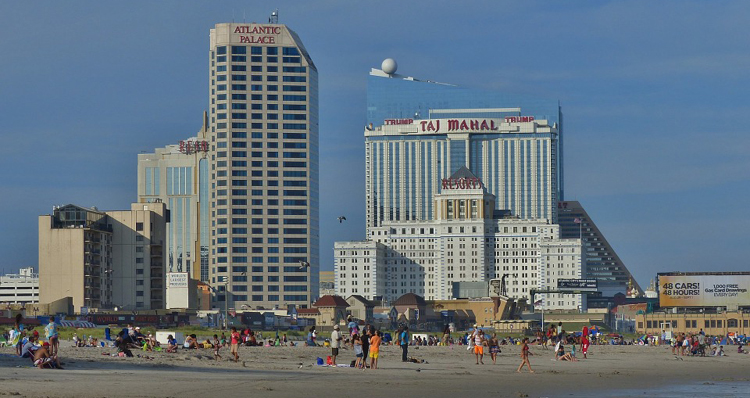Atlantic City submitted a 5 year fiscal plan to New Jersey state officials towards the end of October laying out steps that the city would take to reduce its $500 million debt, increase funding for its yearly budget and put the city on a financial road to recovery. The state Department of Community Affairs reviewed the 125 page proposal and rejected it on November 1.
Commissioner Charles Richman stated that he wasn’t very impressed with the plan as it would not bring sufficient stability to Atlantic City’s financial situation and stated that a number of proposals in the plan revolved around ‘legally dubious asset transfers’ that would raise money to pay off the city’s debt. Now that New Jersey has rejected the fiscal plan, a state takeover of Atlantic City remains possible although the commissioner gave no indication if the state would go ahead with a takeover.
In a statement, Richman said “I would have much preferred to leave management of the city’s recovery in the hands of its municipal officials. However, I am constrained by the plan the city has placed before me. The enormous problems confronting the city did not occur overnight. City leadership has had ample time to improve the city’s financial condition, yet has avoided doing so in any meaningful way. The plan is not likely to achieve financial stability for the city”.
Atlantic City once had a thriving casino industry that generated as much as $5.2 billion in 2006. However, the market has struggled during the last decade and 5 out of the 12 casinos in Atlantic City have been forced to shut down. Revenue from the casino industry in 2015 dropped to $2.56 billion and this significant decline has put a tremendous strain on Atlantic City’s economy. Atlantic City Mayor Don Guardian (R) and Democratic Assembly Speaker Vincent Prieto both expressed their disappointed over the commissioner’s decision to reject the financial recovery plan.
There were a number of aspects in the 5 year proposal that commissioner Richman was not happy with. Some of the points highlighted include underestimating the five year debt service by $18 million, overstating property tax revenues by $20.5 million and an incorrect assumption of bringing in $31 million in redirected casino investment taxes. The commissioner also criticized the proposed sale of the former Bader Field airport property to Atlantic City’s municipal utilities authority for $110 million as said that the deal was ‘structurally flawed’. Richman also pointed out that the city had not included tax increases as part of its fiscal recovery plan.
Should New Jersey decided to go ahead with the Atlantic City takeover, the state will have full authority to break up agencies, dispose city assets, cancel previous decisions made by city officials and take full control over the city’s finances. Mayor Guardian has called on Governor Chris Christie to delay the takeover and has stated that the city will appeal the adverse decision in a court of law.



